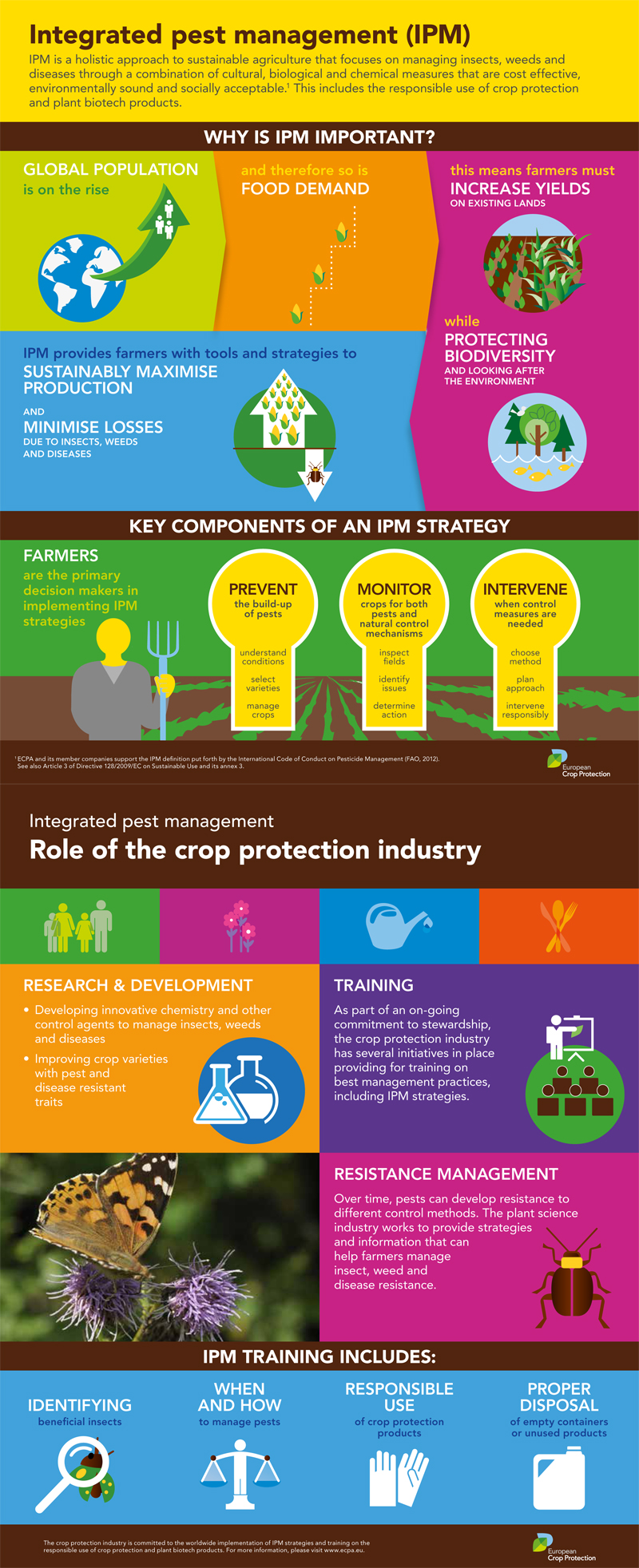Beyond The Spray: Exploring Advanced Techniques Made Use Of By Pest Control Professionals
Beyond The Spray: Exploring Advanced Techniques Made Use Of By Pest Control Professionals
Blog Article
Content Author-Josephsen Henningsen
Are you tired of relying exclusively on sprays to handle pests in your home or office? While sprays can work, pest control specialists have developed advanced strategies that go beyond just splashing chemicals.
These techniques not just give extra effective and lasting services, however also concentrate on minimizing the use of dangerous chemicals. By exploring these advanced methods, you will discover a whole brand-new globe of parasite control approaches that are not only efficient, however likewise eco-friendly.
So, are you prepared to take your pest control video game to the next level?
Integrated Parasite Management (IPM)
If you're searching for a reliable and environmentally-friendly technique to pest control, Integrated Pest Administration (IPM) is the remedy you need. IPM concentrates on lasting avoidance and monitoring of bugs, instead of just relying on chemicals. This method considers the specific needs and behaviors of pests, as well as the surrounding atmosphere.
By using a combination of techniques such as biological control, environment adjustment, and targeted chemical use, IPM aims to decrease the reliance on chemical therapies and lessen harm to non-target microorganisms.
One crucial aspect of IPM is monitoring and recognizing bugs precisely. This includes routinely checking and analyzing the pest population, in addition to recognizing the specific types present. By recognizing the biology and habits of parasites, bug control professionals can develop targeted techniques to interrupt their life cycle and lower their numbers.
One more vital aspect of IPM is using non-chemical control approaches whenever possible. This can consist of physical obstacles, such as installing displays or sealing cracks and holes, to prevent bugs from entering buildings. Additionally, cultural methods, like proper sanitation and waste management, can help remove insect food resources and breeding grounds.
When chemicals are essential, IPM focuses on using them judiciously and as a last option. This means choosing the least hazardous and most reliable choice, using it exactly and just to affected areas, and adhering to all security standards. By minimizing chemical use, IPM reduces the prospective threats to human wellness and the setting.
Biological Control
To additionally improve the performance of Integrated Insect Administration (IPM), the next subtopic we'll explore is the method of organic control. This technique utilizes natural predators or parasites to regulate insects.
Below are four crucial elements of organic control:.
1. Intro of natural enemies: In this method, advantageous bugs or microorganisms are introduced to the area infested with insects. These natural enemies prey on the pests, assisting to reduce their population.
2. Conservation of all-natural adversaries: As opposed to introducing brand-new microorganisms, this method focuses on creating an ideal setting for existing beneficial insects. This can be achieved via offering food, shelter, and water sources.
3. Augmentation: Below, the variety of natural opponents is increased synthetically by reproducing and releasing them right into the infested location. This assists to rapidly lower the pest population.
4. Push-pull method: This technique integrates repellents and attractants to adjust the actions of bugs. Repellents push insects away from plants, while attractants tempt them in the direction of catch plants or locations where they can be easily regulated.
Habitat Adjustment
Environment modification plays an essential duty in insect control by changing the setting to prevent bug problems. By making changes to the physical features of a room, you can create an unwelcoming atmosphere for pests, making it harder for them to endure and grow.
http://www.connectionnewspapers.com/news/2017/apr/20/baby-wild-animals-may-need-our-help-or-no-help-all/ of environment alteration is getting rid of or minimizing potential food sources for pests. This can consist of appropriate waste administration, securing containers, and tidying up food crumbs.
In addition, eliminating or reducing areas of standing water can aid regulate bugs like mosquitoes.
Altering japanese beetle killer by trimming trees and hedges away from buildings can likewise avoid bugs from accessing your residential or commercial property.
Conclusion.
So there you have it - the sophisticated strategies used by pest control experts exceed simply spraying chemicals. Integrated Parasite Management (IPM) incorporates numerous methods to properly regulate parasites, while biological control harnesses natural opponents to maintain pest populations in check.
Environment alteration also plays an important role in protecting against parasite invasions.
Did you understand that according to a research, implementing IPM methods reduced chemical usage by approximately 71%? This not just protects our health and wellness and the atmosphere yet also conserves cash over time.
